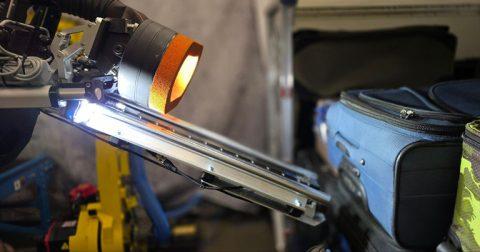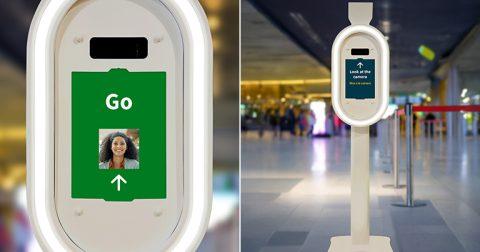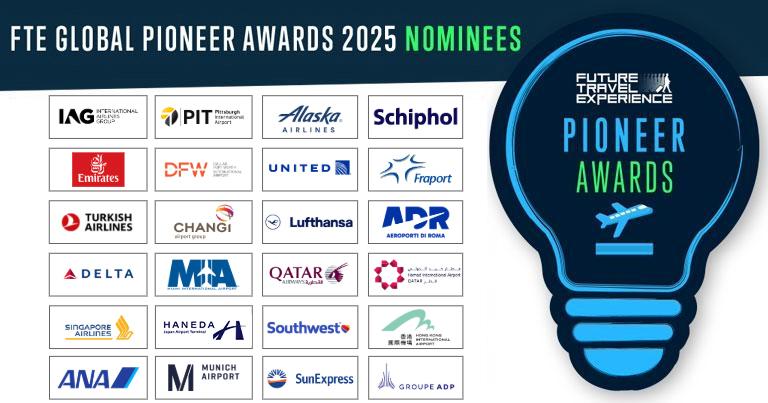
The shortlists for the FTE Global Pioneer Awards 2025 have been unveiled. Read our full awards preview in which we recognise the broad, long-term commitment of these 24 pioneering airlines and airport operators from across the world that are consistently pushing the boundaries to enhance the passenger experience, drive innovation and redefine the future of air travel. Six of the 24 nominees will be presented with an ‘Outstanding Achievement’ trophy during the presentation ceremony in Long Beach, California. The ceremony will take place during the FTE Global 2025 Networking Party on 10 September, with the FTE Global Pioneer Awards sponsored by Assaia, providing the perfect opportunity to honour global innovators among industry friends and colleagues. Congratulations to all of the airlines and airport operators that have been nominated.
View the full FTE Global 2025 schedule at a glance >> Register for FTE Global 2025 >>FTE Global Airline Pioneer Awards 2025 nominees:
International Airlines Group
 Transformation is an essential part of the strategy at International Airlines Group (IAG) – a Corporate Partner of the FTE Digital, Innovation & Startup Hub – and is at the forefront of its planning. Through innovation and its pioneering baggage strategy, IAG aims to deliver a better customer experience, more efficient operations, more sustainable aviation and a better-performing business overall.
Transformation is an essential part of the strategy at International Airlines Group (IAG) – a Corporate Partner of the FTE Digital, Innovation & Startup Hub – and is at the forefront of its planning. Through innovation and its pioneering baggage strategy, IAG aims to deliver a better customer experience, more efficient operations, more sustainable aviation and a better-performing business overall.
IAG has focused its attention on faster baggage repatriation to lower pressure on customer relations teams, reduce customer anxiety and increase customer satisfaction. Through running a Proof of Concept trial at Heathrow from August, IAG is introducing ‘Baggage Biometrics’ – a solution that biometrically scans baggage, building an image repository. Should a bag lose its tag, the item can be scanned again to be matched to its owner’s destination immediately. The aim is to reduce fraudulent baggage claims by capturing the state of the bag as soon as it is checked-in to be image matched and compared later. Additionally, IAG is in the process of implementing a nesting system between its LHR and JFK hubs, enabling full tracking of all bags between the two airports. Both stations, along with customer relations teams, will have access to bag images and tracking data, allowing them to provide accurate information to customers and reduce time spent on support calls.
Meanwhile, ‘Self-Service Baggage Kiosks’ allow customers to self-serve upon arrival in 20 languages, if their bag is mishandled. This is a quicker option for the customer, allowing them to continue their journeys faster. Plus, ‘Proactive Customer Care Baggage Collection’ is an initiative born out of giving customers a choice when a bag has not arrived at its destination. The criterion for this initiative requires a service to arrive within 90 minutes of the customer’s arrival, with the mishandled bag onboard. Using IAG’s in-house system, the crew can identify any passenger whose bag has been mishandled. With a single-click integration, the crew can proactively reach out to the customer and offer the option to wait for their bag on the upcoming service. A voucher for complimentary refreshments can then be issued electronically or provided upon arrival to enhance the customer experience while they wait.
Hear more from International Airlines Group (IAG) at FTE Global – the “CES of Aviation” taking place in Long Beach, California, on 9 to 11 September 2025. Harvey Tate, Senior Manager – Airport Automation, IAG, is participating in a session titled ‘How do we leverage technology, innovation and new approaches to create Smart Ramp operations around the world and create holistic solutions to cover airline/airport/handler needs?’
View the full FTE Global 2025 schedule at a glance >> Register for FTE Global 2025 >>Alaska Airlines
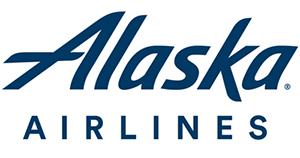 Alaska Airlines – a Partner of the FTE Baggage Innovation Working Group – is shortlisted for a range of pioneering initiatives, including its Smart Ramp program, which leverages cutting-edge technologies such as Assaia’s artificial intelligence (AI) computer vision to monitor the ramp, Pattern Labs’ automated bag dispatch for ramp service agents, and emerging robotics to improve safety and efficiency. This industry-leading program is revolutionising baggage handling at Seattle-Tacoma International Airport.
Alaska Airlines – a Partner of the FTE Baggage Innovation Working Group – is shortlisted for a range of pioneering initiatives, including its Smart Ramp program, which leverages cutting-edge technologies such as Assaia’s artificial intelligence (AI) computer vision to monitor the ramp, Pattern Labs’ automated bag dispatch for ramp service agents, and emerging robotics to improve safety and efficiency. This industry-leading program is revolutionising baggage handling at Seattle-Tacoma International Airport.
At the FTE World Innovation Summit in Pittsburgh in May, Alaska Airlines unveiled a transformative new vision for future gate experiences, with plans to revolutionise pre-flight operations with automation, AI, and human-centred design. This builds on Alaska’s dynamic new approaches that are driving a sub 5-minute lobby experience across its airport network, while its Mobile Verify program, powered by Airside, enables travellers to verify their passport from home.
Meanwhile, the airline is embracing robotics and automation, preparing for what it calls the ‘Proactive Era’: where robotics enable it to detect and prevent irregular operations, where Virtual Travel Assistants guide guests every step of the way, and customer service becomes ‘super-charged’ with guest insights delivered to agents through Augmented Reality (AR)-enabled wearables. Alaska Airlines envisions a future where automation and high levels of guest care work hand-in-hand.
Hear more from Alaska Airlines at FTE Global – the “CES of Aviation” taking place in Long Beach, California, on 9 to 11 September 2025. Natalie Randall, Day of Travel Experience Manager, Alaska Airlines, is participating in ‘The APEX/FTE Accessibility Symposium – let’s go above and beyond what is required’. Nicole Hodges-Austin, Innovation Program Manager, Alaska Airlines, is speaking in a session titled ‘Pilot stories: What are hard lessons learned, and secrets, to a successful innovation journey?’ Meanwhile, Gus Naughton, Principal Software Engineer – Innovation, Alaska Airlines, is participating in two sessions. Naughton will deliver a joint presentation alongside Kellen Schroeter, CEO & Co-Founder, Pattern Labs, titled ‘What is the in-depth story behind Alaksa Airlines becoming the first airline to automate dispatch on the ramp with AI?’ He is also speaking in a session titled ‘How do we now revolutionise the gate and boarding experience, and other key airport pinch-points?’
View the full FTE Global 2025 schedule at a glance >> Register for FTE Global 2025 >>Emirates
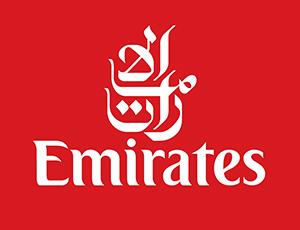 Emirates – a Partner of the FTE Baggage Innovation Working Group – has consistently positioned itself as a trailblazer in the aviation industry, embracing innovation across multiple dimensions. It is aiming to redefine excellence in aviation through strategic investments, cutting-edge technology, and a customer-centric approach. Its initiatives span operational efficiency, customer experience, commercial performance, sustainability, and cultural leadership.
Emirates – a Partner of the FTE Baggage Innovation Working Group – has consistently positioned itself as a trailblazer in the aviation industry, embracing innovation across multiple dimensions. It is aiming to redefine excellence in aviation through strategic investments, cutting-edge technology, and a customer-centric approach. Its initiatives span operational efficiency, customer experience, commercial performance, sustainability, and cultural leadership.
Emirates has implemented fuel-saving procedures like optimised flight speeds, reduced flap landings, idle reverse thrust, and reduced engine taxiing. These measures saved over 48,000 tonnes of fuel and reduced 151,000 tonnes of carbon emissions in 2023-2024.
Emirates is enhancing customer experience through its ‘One Device Initiative’. The airline has equipped 20,000 cabin crew with iPhones and iPads loaded with custom apps to personalise service, streamline operations, and enhance safety. Meanwhile, biometric gates and walkthrough immigration corridors offer seamless airport experiences.
A $4 billion retrofit program is upgrading interiors across the fleet, including lie-flat seats and elegant design motifs, while immersive crew training uses extended reality (XR) and haptic feedback, accelerating onboarding and improving crew readiness.
Emirates SkyCargo uses artificial intelligence (AI) and data analytics to optimise cargo operations and maintain global supply chain reliability.
Meanwhile, strategic collaborations with Amazon Web Services and GE Digital are enhancing digital transformation and operational intelligence.
Emirates’ innovation in sustainability includes an eco-efficient fleet that meets ICAO noise and emission standards, with ongoing investments in hydrogen and biofuel technologies; drywash aircraft cleaning, which saves millions of litres of water annually while improving aerodynamics; solar-powered facilities, such as Emirates’ Engine Maintenance Centre and Flight Catering units, reducing CO₂ emissions by millions of kilograms; meal trays and amenity kits are recycled and repurposed locally, supporting circular economy goals; and building the world’s largest vertical farm to supply fresh, pesticide-free produce for inflight meals.
Meanwhile, the Ebdaa Innovation Hub – a post-Expo 2020 initiative – fosters collaboration between youth, universities, and tech startups to develop aviation solutions.
Hear more from Emirates at FTE Global – the “CES of Aviation” taking place in Long Beach, California, on 9 to 11 September 2025. Melanie Bryant, Vice President – IT Delivery and Business Enablement, Emirates, is participating in a session focused on ‘Advancing Digital Identity & Seamless Travel Efforts’.
View the full FTE Global 2025 schedule at a glance >> Register for FTE Global 2025 >>United Airlines
 United Airlines – a Corporate Partner of the FTE Digital, Innovation & Startup Hub – relentlessly champions using innovation and technology to deliver a best-in-class customer experience. Migration to the cloud, in partnership with Amazon Web Services, is supporting innovation using artificial intelligence (AI), machine learning and Internet of Things (IoT) capabilities. AI has been a long-term strategic investment for United. The airline has ambitious plans for generative AI (GenAI) and has already launched United ChatGPT for secure employee experimental use, as well as GenAI tools to assist in giving travellers real-time updates during flight delays which has boosted customer satisfaction.
United Airlines – a Corporate Partner of the FTE Digital, Innovation & Startup Hub – relentlessly champions using innovation and technology to deliver a best-in-class customer experience. Migration to the cloud, in partnership with Amazon Web Services, is supporting innovation using artificial intelligence (AI), machine learning and Internet of Things (IoT) capabilities. AI has been a long-term strategic investment for United. The airline has ambitious plans for generative AI (GenAI) and has already launched United ChatGPT for secure employee experimental use, as well as GenAI tools to assist in giving travellers real-time updates during flight delays which has boosted customer satisfaction.
United also recently launched new, personalised mobile app features designed to make catching connecting flights easier. Customers with connecting flights at United’s U.S. hub airports can now access a special section of the app that includes a countdown to connecting flights, customised turn-by-turn directions to their connecting gate with estimated walk times, real-time flight status updates, tips for longer layovers, and notifications if United’s ConnectionSaver technology has been activated to hold the plane for them.
As part of its innovation strategy, United is also exploring areas such as robotics & automation to drive a smoother travel experience. One example is efforts to transform baggage handling, with the airline exploring autonomous baggage carts, robotic solutions for loading and unloading bags, automated aircraft pushback solutions, and more. One robotics initiative already underway is United’s collaboration with WHILL, with the aim of making airport terminal transport more accessible using autonomous personal mobility devices.
Hear more from United Airlines at FTE Global – the “CES of Aviation” taking place in Long Beach, California, on 9 to 11 September 2025. In an exclusive keynote interview, Scott Kirby, CEO, United Airlines, will offer an inside look at the strategy forging United’s incredible transformation, including the cultural and operational shifts that are rapidly accelerating the airline’s progress. Meanwhile, Sagi Varghese, Managing Director, Airport Operations & CSD Technology, United Airlines, is participating in ‘The Technology Leaders Conversation’; Kushal Pasari, Director of GenAI & ML Engineering, United Airlines, is speaking in ‘The FTE AI Symposium – A deep-dive into Agentic AI and the move towards Artificial General Intelligence’; Kristen Berndt, Director, Below-the-Wing Strategy & Innovation, United Airlines, is participating in ‘The FTE Robotics & Autonomous Vehicles Symposium’; and Kaveh Dabiran, Managing Director, Corporate Real Estate Planning & Development, United Airlines, is speaking in a session focused on ‘The future of business & commercial strategies for airports’.
View the full FTE Global 2025 schedule at a glance >> Register for FTE Global 2025 >>Turkish Airlines
 Turkish Airlines – a Corporate Partner of the FTE Digital, Innovation & Startup Hub – is charting a course to rank among the top 3 global airlines for digital passenger experience. The airline has a thorough strategy that includes fintech, artificial intelligence (AI), biometrics, and an all-encompassing digital experience for passengers.
Turkish Airlines – a Corporate Partner of the FTE Digital, Innovation & Startup Hub – is charting a course to rank among the top 3 global airlines for digital passenger experience. The airline has a thorough strategy that includes fintech, artificial intelligence (AI), biometrics, and an all-encompassing digital experience for passengers.
As a recognised ‘2025 APEX World Class Airline’, Turkish Airlines is committed to continuous innovation. The airline turns 100 in 2033 and its centennial vision includes delivering a personalised digital experience at every touchpoint. A key focus on this journey for Turkish Airlines is building resilience into its 24/7 operation to support the growth and transformation of the airline, as well as its low-cost carrier AJet, with a different tech approach being taken for the new airline brand. Turkish Airlines’ digital strategy is focused on building operational resilience and enhancing customer experience. This is exemplified by the launch of TK Wallet, a feature within the airline’s app and website that simplifies payment and refund processes for Miles&Smiles loyalty members.
Turkish Technology, the airline’s IT subsidiary, is crucial in this transformation. With more than 1,500 employees, this company focuses on providing advanced IT services, leading research and development in AI, analytics, fintech, and cybersecurity.
The airline also acknowledges the potential of robotics and automation in tasks such as baggage handling and aircraft turnarounds, highlighting the importance of automation working alongside, rather than replacing, human interaction.
Lufthansa
 Lufthansa Group – a Partner of the FTE Baggage Innovation Working Group – is harnessing artificial intelligence (AI)-driven insights to anticipate and respond dynamically to changes, ensuring efficiency and customer satisfaction remain at the heart of operations. It is working intensively on enhancing and digitalising its customer services with AI and machine learning technologies, with the aim of offering hyper-personalised passenger services. Digital Hangar – the airline’s digital-focused business unit – aims to accelerate digital transformation, “creating the world’s best-connected travel experience”.
Lufthansa Group – a Partner of the FTE Baggage Innovation Working Group – is harnessing artificial intelligence (AI)-driven insights to anticipate and respond dynamically to changes, ensuring efficiency and customer satisfaction remain at the heart of operations. It is working intensively on enhancing and digitalising its customer services with AI and machine learning technologies, with the aim of offering hyper-personalised passenger services. Digital Hangar – the airline’s digital-focused business unit – aims to accelerate digital transformation, “creating the world’s best-connected travel experience”.
Lufthansa Group airlines have further optimised the travel experience for passengers with additional digital functions. The Lufthansa Group app serves as a digital companion throughout the entire journey, from booking to arrival and beyond.
Immersive technologies are also a key element of Lufthansa’s strategy. The airline has collaborated with Meta, the parent company of Facebook, to offer Meta Quest 3 Mixed Reality headsets to passengers flying in its new Allegris Business Class. Lufthansa Group has been using Extended Reality in training and marketing for some time – and is now a first-mover for this innovative entertainment offering. Lufthansa recently shared an update on the pilot program with Lufthansa to bring Quest 3 headsets to passengers at scale through a fully integrated service. Imagine settling into your Lufthansa Allegris Business Class Suite seat and being handed a Quest 3 headset. You’re no longer simply flying – you’re embarking on a journey through immersive worlds.
Autonomous vehicles and automation on the ramp is another key focus area.
Meanwhile, last year Lufthansa launched an innovative partnership with Munich Airport and Miles & More – a unique cooperation between an airport, an airline and a loyalty program. This collaborative approach is perfectly aligned with the objectives of the FTE World Ancillary & Retailing Working Group. FTE firmly believes that by working collaboratively as a sector and leveraging technology, innovative approaches, and new business models, we can create a significantly larger revenue pie for everyone to share, and this unique cooperation between Lufthansa, Munich Airport and Miles & More is the most concrete example we have seen yet of this in action.
Hear more from Lufthansa Group at FTE Global – the “CES of Aviation” taking place in Long Beach, California, on 9 to 11 September 2025. Anja Schuhmacher, Senior Manager Airport Experience & Partnerships, Lufthansa, is participating in a session focused on ‘Achieving a revolution in baggage by 2030’.
View the full FTE Global 2025 schedule at a glance >> Register for FTE Global 2025 >>Delta Air Lines
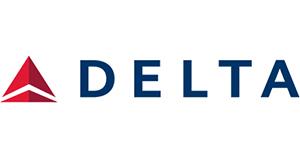 Delta Air Lines – a Partner of the FTE Baggage Innovation Working Group – continues to innovate and modernise digital tools to put the power of flexibility, control, and simplicity at the core of the travel experience. As a key part of its CX strategy, Delta aims to take personalisation to the next level. It recently launched the enhanced Fly Delta app version 7.0 which provides real-time flight updates, personalised notifications, seamless travel documentation support and more – giving customers greater control through expanded self-service features and a more connected travel experience. The goal is for the Fly Delta app to be the ultimate travel companion, enhancing every step of the customer journey to ensure seamless and connected travel.
Delta Air Lines – a Partner of the FTE Baggage Innovation Working Group – continues to innovate and modernise digital tools to put the power of flexibility, control, and simplicity at the core of the travel experience. As a key part of its CX strategy, Delta aims to take personalisation to the next level. It recently launched the enhanced Fly Delta app version 7.0 which provides real-time flight updates, personalised notifications, seamless travel documentation support and more – giving customers greater control through expanded self-service features and a more connected travel experience. The goal is for the Fly Delta app to be the ultimate travel companion, enhancing every step of the customer journey to ensure seamless and connected travel.
Building on this, the airline’s tech-forward vision for the future of travel was vividly presented at CES 2025, where Delta Concierge was introduced. This involves leveraging Delta-centric artificial intelligence (AI) for an elevated human touch to supercharge the customer experience. Delta Concierge is built into the Fly Delta app. The experience uses generative AI to create seamless and personalised experiences, while making a customer’s journey easier, with multi-modal transportation options offered through Delta partners Uber and Joby.
Delta is also unlocking a simpler, more personalised airport experience in partnership with tech startup Misapplied Sciences, through the PARALLEL REALITY technology. Customers travelling through Detroit Metropolitan Airport can experience this innovative tech, which allows up to 100 customers to each see personalised flight information tailored to their unique trip on a single, shared digital screen, simplifying their journey through the airport at a glance.
Qatar Airways
 Qatar Airways’ vision is to blend human connection with technological innovation. It is integrating cutting-edge technology to enhance its digital brand experience, including redefining the pre-travel experience with Sama, the world’s first artificial intelligence (AI)-powered real-time conversational booking system, and QVerse – its virtual travel experience platform.
Qatar Airways’ vision is to blend human connection with technological innovation. It is integrating cutting-edge technology to enhance its digital brand experience, including redefining the pre-travel experience with Sama, the world’s first artificial intelligence (AI)-powered real-time conversational booking system, and QVerse – its virtual travel experience platform.
With Sama, travellers can naturally speak or type their preferences to search, book, and refine flights without following a rigid step-by-step process. Sama tailors itineraries, offering a seamless, intuitive alternative to traditional booking forms. Supporting multiple languages and integrated across Qatar Airways’ website, app, and Qverse metaverse platform, Sama is available 24/7 and designed to improve accessibility for users with visual, mobility, or literacy challenges. Beyond enhancing the customer journey, the platform also reduces call centre volume, supports sustainability through digital-first operations, and positions Qatar Airways as a pioneer in the evolution from form-based booking to conversational commerce. The deployment of Sama and QVerse has initiated a new era of digital engagement at Qatar Airways. The combination of both technologies has proven instrumental in identifying previously unrecognised customer pain-points within the pre-travel phase.
The airline’s foundational work with AI and Virtual Reality is setting the stage for further innovations in Augmented Reality and the Internet of Things (IoT). It plans to use Augmented Reality to enhance passenger interactions by overlaying personalised, context-aware information directly into their field of view, making every step of their journey more engaging. Similarly, IoT will interconnect various elements of the travel experience, from airport facilities to inflight services, ensuring seamless communication and enhanced service delivery.
Hear from Qatar Airways at FTE Global – the “CES of Aviation” taking place in Long Beach, California, on 9 to 11 September 2025. Xia Cai, Senior Vice President Product Development and Design, Qatar Airways, is participating in a session focused on ‘Collaborative & transformative approaches to reimagining CX’ with a presentation titled ‘How is Qatar Airways now successfully blending technology with its hospitality approach and how will that likely evolve into the future?’
View the full FTE Global 2025 schedule at a glance >> Register for FTE Global 2025 >>Singapore Airlines
 Singapore Airlines – a Headline Partner of APEX FTE Asia Expo, Singapore, 11-12 November 2025 – is committed to digital innovation and leadership in the airline industry. It is, for example, embracing generative AI (GenAI) and has developed a blueprint for its implementation across the organisation, exemplifying the airline’s commitment to leverage emerging technologies. As part of these efforts, Singapore Airlines and OpenAI recently announced they are working together to develop and implement advanced GenAI solutions for the airline, in a first-of-its-kind collaboration between OpenAI and a major carrier. These tools will be able to interpret text, audio, diagrams, and videos to augment customer servicing capabilities, as well as streamline processes to improve operational efficiencies and staff productivity. The two organisations are firstly partnering to improve Singapore Airlines’ existing AI-powered virtual assistant to deliver a more seamless and intuitive experience for customers as they plan, book, and manage their journeys.
Singapore Airlines – a Headline Partner of APEX FTE Asia Expo, Singapore, 11-12 November 2025 – is committed to digital innovation and leadership in the airline industry. It is, for example, embracing generative AI (GenAI) and has developed a blueprint for its implementation across the organisation, exemplifying the airline’s commitment to leverage emerging technologies. As part of these efforts, Singapore Airlines and OpenAI recently announced they are working together to develop and implement advanced GenAI solutions for the airline, in a first-of-its-kind collaboration between OpenAI and a major carrier. These tools will be able to interpret text, audio, diagrams, and videos to augment customer servicing capabilities, as well as streamline processes to improve operational efficiencies and staff productivity. The two organisations are firstly partnering to improve Singapore Airlines’ existing AI-powered virtual assistant to deliver a more seamless and intuitive experience for customers as they plan, book, and manage their journeys.
Singapore Airlines takes a collaborative approach to technological advancements and customer-centric innovation. As part of this, it has signed a Memorandum of Understanding to collaborate on the International Aviation Lab established by the Civil Aviation Authority of Singapore to jointly explore, initiate and undertake innovation projects.
Singapore has an updated national artificial intelligence (AI) strategy – National AI Strategy 2.0 – with the aim of becoming a world leader in AI. National carrier Singapore Airlines is at the forefront of this AI revolution, driving the incorporation of AI to optimise operations. The airline works closely with open innovation communities, startups and entrepreneurs through its Digital Innovation Lab, KrisLab. An example is Singapore Airlines’ partnership with a startup to develop a crew language competency app that leverages AI and speech recognition technology. This offers crew a platform to enhance their delivery of onboard announcements through asynchronous learning, enabling them to enhance their language skills and improve their enunciation.
Southwest Airlines
![]() Southwest Airlines – a Corporate Partner of the FTE Digital, Innovation & Startup Hub and a Partner of the FTE Baggage Innovation Working Group – has a progressive approach to robotics and artificial intelligence (AI), which it believes offer immense potential to revolutionise the airline industry. Southwest is strategically harnessing both traditional AI and generative AI (GenAI). An example of an application of traditional AI involves predicting flight risks and furnishing actionable insights and alerts for the airline’s Operations team. This empowers them to effectively manage and recover from operational disruptions. Southwest’s Leading Indicator Alert Tool combines existing data with AI and machine learning to create predictive models that allow the airline to proactively address potential issues, enhancing both operational efficiency and customer experience.
Southwest Airlines – a Corporate Partner of the FTE Digital, Innovation & Startup Hub and a Partner of the FTE Baggage Innovation Working Group – has a progressive approach to robotics and artificial intelligence (AI), which it believes offer immense potential to revolutionise the airline industry. Southwest is strategically harnessing both traditional AI and generative AI (GenAI). An example of an application of traditional AI involves predicting flight risks and furnishing actionable insights and alerts for the airline’s Operations team. This empowers them to effectively manage and recover from operational disruptions. Southwest’s Leading Indicator Alert Tool combines existing data with AI and machine learning to create predictive models that allow the airline to proactively address potential issues, enhancing both operational efficiency and customer experience.
Southwest is on a transformative journey from traditional AI and robotics process automation to a more versatile AI architecture, integrating traditional AI initially and now in combination with GenAI, leveraging AI for smoother operations, and identifying friction points for optimisation. This journey showcases the evolution towards an adaptable AI structure, fostering innovation and efficiency across the airline. The airline is also leveraging computer vision technology to improve turnaround performance at the gate.
Southwest is also harnessing the power of the Internet of Things (IoT) for data acquisition for its Facilities Teams and to streamline control processes with its Ground Operations Teams. Understanding the critical importance of data to operations, Southwest is actively exploring the significant role IoT can play in data collection across all facets of its operations.
In addition, the airline recently expanded its partnership with CellPoint Digital for Getaways by Southwest. The collaboration coincides with the launch of CellPoint Digital’s new cloud-native Payment Orchestration platform, marking a significant advancement in travel commerce technology. Southwest will leverage CellPoint Digital’s new platform to deliver personalised travel experiences through an advanced Offer & Order payment solution.
Hear more from Southwest Airlines at FTE Global – the “CES of Aviation” taking place in Long Beach, California, on 9 to 11 September 2025. Sree Samudrala, Director of Artificial Intelligence & Automation, Southwest Airlines, is participating in ‘The FTE AI Symposium – Part 2: A deep-dive into Agentic AI and the move towards Artificial General Intelligence’, and Andrea Goodpasture, Managing Director- Airport Affairs, Southwest Airlines, is speaking in a session titled ‘The future of business & commercial strategies for airports – are we at the threshold of airports evolving to become digital companies that run experiential businesses, and what would the new business models and organisational structures be behind that?’ Meanwhile, Kevin Kleist, Head of Emerging Trends, Southwest Airlines, is participating in three sessions titled ‘How do we now revolutionise the gate and boarding experience, and other key airport pinch-points?’, ‘Crowdsourced Safety: What 4,400 Photos Can Teach AI (and us)’, and ‘Pilot stories: What are hard lessons learned, and secrets, to a successful innovation journey?’
View the full FTE Global 2025 schedule at a glance >> Register for FTE Global 2025 >>All Nippon Airways
 All Nippon Airways (ANA) – a Partner of the FTE Baggage Innovation Working Group – is taking a pioneering approach to automation. Earlier this year, it joined the groundbreaking FTE Smart Ramp program, which has the ultimate goal that aircraft turnaround can be achieved autonomously and more efficiently. Each member is undertaking an innovation challenge, with ANA focusing on implementing autonomous towing tractors for cargo transportation to efficiently move cargo from the warehouse to the apron, reducing the need for manual labour in operations.
All Nippon Airways (ANA) – a Partner of the FTE Baggage Innovation Working Group – is taking a pioneering approach to automation. Earlier this year, it joined the groundbreaking FTE Smart Ramp program, which has the ultimate goal that aircraft turnaround can be achieved autonomously and more efficiently. Each member is undertaking an innovation challenge, with ANA focusing on implementing autonomous towing tractors for cargo transportation to efficiently move cargo from the warehouse to the apron, reducing the need for manual labour in operations.
From October 2024, the VR training simulator ‘∀TRAS (Atlas)’ has been introduced to ANA Grand Handling Department training nationwide. The introduction of ‘∀TRAS (Atlas)’ will improve business efficiency and provide a nationwide training environment. It will lead to one of the solutions to the shortage of human resources in the entire ground handling industry.
ANA is also continuing its digital transformation journey, with plans to streamline its passenger service systems for “a seamless travel experience”. The airline has entered the metaverse with ANA NEO and, as part of this, has launched ANA Granwhale – a virtual travel platform. Leveraging the power of virtual travel, this platform aims to enhance the number of inbound travellers to Japan, as well as promoting and facilitating the sale of specialty and regional products through e-commerce. Meanwhile, ANA Smart Travel aims to provide customers with a smooth and stress-free travel experience. The service model enables passengers to use their smartphones throughout their journey, with the intention of improving convenience and promoting contactless travel. Through these efforts, ANA aims to improve customer experience value, while strengthening its competitiveness and pursuing business efficiencies at the same time.
ANA is also innovating the inflight experience, recently unveiling ‘THE Room FX’ in collaboration with Safran. This next-generation Business Class seat has a privacy door for each seat of the Boeing 787-9 aircraft – the world’s largest seat in its class on a mid-sized aircraft.
SunExpress
 Over the past 12 months, SunExpress has advanced its transformation journey by delivering a suite of technology-driven initiatives that enhance operational efficiency, improve crew and passenger experience, and shape the future of aviation through innovation and cultural ambition.
Over the past 12 months, SunExpress has advanced its transformation journey by delivering a suite of technology-driven initiatives that enhance operational efficiency, improve crew and passenger experience, and shape the future of aviation through innovation and cultural ambition.
One of SunExpress’ flagship innovations, AviroConnect, is a cloud-native digital integration platform enabling event-driven architecture and real-time communication across airline systems. This foundational technology powers multiple core aviation tools, such as CrewBuddy – a mobile-first crew engagement platform that provides seamless access to rosters and real-time operational updates. CrewBuddy now supports over 1,000 digital peer evaluations daily, increasing transparency and responsiveness in flight operations.
To optimise crew logistics, Crew Accommodation Planning automation now processes hotel confirmation emails in real-time, replacing manual workflows and significantly improving reliability during irregular operations. In parallel, the Irregular Flight List Automation (RPA) initiative eliminated manual bottlenecks during peak seasons – freeing up two full-time equivalents by automating disruption management.
Operational excellence has been further supported by the IT Operational Performance Scorecard, which consolidates live system health and incident analytics into actionable dashboards. This has directly contributed to a reduction in major incidents from 37 to 17, boosting system resilience and service availability.
In strategic infrastructure, SunExpress’ multicloud adoption – following a successful migration to Azure – has introduced technological diversity, optimised cost performance, and laid the groundwork for a resilient digital ecosystem. AWS is the second hyperscaler now.
Beyond systems and processes, SunExpress has also invested in culture and ideation. Its internal SharkTank program sparked bottom-up innovation by inviting employees to pitch and develop new ideas. This led to the incubation of two separate initiatives, reinforcing the airline’s commitment to empowerment and entrepreneurial thinking.
Together, these projects reflect SunExpress’ bold ambition to redefine how an airline can operate in a fast-changing world – by embracing innovation, empowering teams, and delivering measurable impact across the entire aviation value chain.
FTE Global Airport Pioneer Awards 2025 nominees:
Pittsburgh International Airport
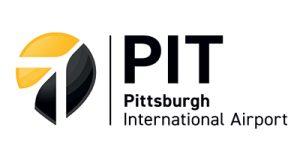 Pittsburgh International Airport (PIT) – a Corporate Partner of the FTE Digital, Innovation & Startup Hub – has become a bold disruptor in the aviation industry that redefines how the world sees an airport’s role in its community, industry and world. This can be seen across myriad projects, from PIT’s first-of-its-kind microgrid that powers the airport campus to its latest development – the modernised, state-of-the-art airport terminal that opens in fall 2025. PIT’s ambitious modernisation includes a new landside terminal, parking structure and airside terminal renovations. The transformed PIT will include a state-of-the-art baggage handling system that provides a more streamlined baggage delivery process that will decrease waiting times for passengers.
Pittsburgh International Airport (PIT) – a Corporate Partner of the FTE Digital, Innovation & Startup Hub – has become a bold disruptor in the aviation industry that redefines how the world sees an airport’s role in its community, industry and world. This can be seen across myriad projects, from PIT’s first-of-its-kind microgrid that powers the airport campus to its latest development – the modernised, state-of-the-art airport terminal that opens in fall 2025. PIT’s ambitious modernisation includes a new landside terminal, parking structure and airside terminal renovations. The transformed PIT will include a state-of-the-art baggage handling system that provides a more streamlined baggage delivery process that will decrease waiting times for passengers.
To help initiate a better customer experience at the new terminal, PIT created ‘We Got You’ – a program that seeks to empower staff and support underrepresented passengers. Spearheaded by the airport’s Experience & Design department – a group unique to airports that is solely focused on enhancing the passenger experience – this program aims to help passengers navigate unexpected events. The passenger-first initiative equips airport Information Desk staff and volunteers with handheld devices to provide travellers with real-time assistance and clear guidance. This program was piloted in the spring, and after successful testing by PIT Ambassadors, it will begin its final implementation phase in the upcoming months.
As the aviation industry continues its pursuit to reach net zero emissions by 2050, PIT has followed suit to ensure it maintains sustainability efforts that align with the industry’s efforts. In June, PIT announced a partnership with Avina Energy to develop an onsite SAF production facility, expanding the airport’s work in the energy space. The airport’s onsite microgrid powers its campus through nearly 10,000 solar panels and onsite natural gas, saving PIT over $1 million in electricity costs. In April, PIT announced that it would add over 11,000 solar panels to its existing solar field, doubling its size to more than 20,000 panels. The additional 12 acres of panels will enable the generation of an additional 4.7 megawatts of clean energy.
PIT’s work in the energy space was showcased at the FTE World Innovation Summit in May, hosted onsite at PIT and Carnegie Mellon University (CMU).
Amsterdam Airport Schiphol
 Royal Schiphol Group – a Corporate Partner of the FTE Digital, Innovation & Startup Hub and a Partner of the FTE Baggage Innovation Working Group – has in the past 12 months taken the operational integration of artificial intelligence (AI) turnaround (Deep Turnaround) at Amsterdam Airport Schiphol (AMS) to the next level. Indeed, it is now one of the largest examples of applied AI technology in a business-critical airport operation and has been a key project this year for Schiphol. The airport, airlines and ground handlers have all integrated the real-time data and predictions of Deep Turnaround into their ground operations systems, making decisions based on data provided through AI. The results are impressive – the average delay has decreased by 4 minutes, while the amount of missed runway slots has decreased by 11%. All because of a more predictable operational environment.
Royal Schiphol Group – a Corporate Partner of the FTE Digital, Innovation & Startup Hub and a Partner of the FTE Baggage Innovation Working Group – has in the past 12 months taken the operational integration of artificial intelligence (AI) turnaround (Deep Turnaround) at Amsterdam Airport Schiphol (AMS) to the next level. Indeed, it is now one of the largest examples of applied AI technology in a business-critical airport operation and has been a key project this year for Schiphol. The airport, airlines and ground handlers have all integrated the real-time data and predictions of Deep Turnaround into their ground operations systems, making decisions based on data provided through AI. The results are impressive – the average delay has decreased by 4 minutes, while the amount of missed runway slots has decreased by 11%. All because of a more predictable operational environment.
Over the past year, AMS has also made significant strides in innovation and operational transformation through the development and rollout of ‘GP Insights’ – a groundbreaking decision-support tool for gate planners. The AI-powered platform provides real-time situational awareness and intelligent planning suggestions, enabling planners to make better trade-offs between competing priorities – such as minimising remote stand usage, reducing PRM handling at remote stands, optimising bus demand, and lowering tow needs.
Meanwhile, over the past year AMS has redefined what a seamless passenger experience can look like through two world-first innovations: Time Slots and Flow Balancing. These initiatives reflect Schiphol’s ambition to become Europe’s benchmark by 2030, delivering measurable impact in operational efficiency, safety, passenger satisfaction, and commercial value. Time Slots allow passengers to pre-book a security time slot three days before departure. What makes the solution unique is its dynamic nature: an algorithm adjusts slot availability automatically based on inputs, like planned capacity, flight schedules, show-up profiles, and more from the Airport Operation Center (APOC). This algorithm is steering passengers to off-peak moments, serving passengers in terms of near-zero waiting times, and serving the airport in terms of efficiently used capacity. Meanwhile, Flow Balancing uses real-time sensor data, predictive models, and digital twin technology to monitor and manage crowd flows. When congestion is forecast, the system suggests proactive interventions: rerouting specific flights or passenger groups during a certain time window. These decisions are communicated through dynamic digital signage, keeping passengers unaware of the behind-the-scenes orchestration.
Hear more from Schiphol Group at FTE Global – the “CES of Aviation” taking place in Long Beach, California, on 9 to 11 September 2025. Martijn van Boven, Product Manager, Schiphol, and Mohamed Talbi, Product Manager, Schiphol, are participating in a session focused on ‘Deep-dive digital transformation case studies: Tangible business cases of implementing digitisation strategies in various tech fields, with emphasis on data-driven insights and transparency regarding faced challenges’. They will deliver a presentation titled ‘How has Schiphol achieved a breakthrough using digital solutions to manage airside activities and passenger flows, that has enabled them to optimise decision making and reduce peak loads by 20%?’
View the full FTE Global 2025 schedule at a glance >> Register for FTE Global 2025 >>Dallas Fort Worth International Airport
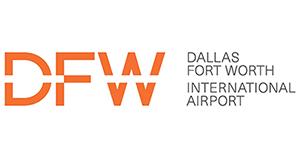 Digital transformation is a key pillar of Dallas Fort Worth International Airport’s (DFW) ‘Travel. Transformed’ strategic plan, focusing on innovation with a collective goal to continuously reinvent the way it operates and to deliver new solutions to the airport’s customers and business partners.
Digital transformation is a key pillar of Dallas Fort Worth International Airport’s (DFW) ‘Travel. Transformed’ strategic plan, focusing on innovation with a collective goal to continuously reinvent the way it operates and to deliver new solutions to the airport’s customers and business partners.
DFW – a Corporate Partner of the FTE Digital, Innovation & Startup Hub – is embracing innovation in areas such autonomous mobility, connectivity, artificial intelligence (AI) and machine learning. Among DFW’s myriad digital transformation initiatives are its ground-breaking Digital Twin project, which is enabling the airport to make proactive, data-led decisions in real-time to meet its sustainability, efficiency and resiliency goals.
Meanwhile, DFW partnered with Dallas-based AT&T to provide the airport with a comprehensive wireless platform to enhance connectivity and critical infrastructure. The $10 million worth of upgrades to modernise and expand the network covering the airport supports airport operations and advances free public WiFi in the terminals. A private 5G network for the airport’s internal use will meet the rising demand for Internet of Things (IoT) use cases and the digitisation of airport operations.
In partnership with Synect, DFW is also redefining airport communication through smart signage to leverage content and systems to influence passenger behaviour, streamline operations, and maximise ROI.
DFW believes in the power of collaborative innovation and is also a member of the pioneering Airports for Innovation network – a global coalition of 10 airports working together on next-generation solutions to enhance the passenger experience, which recently launched its first joint ‘Call4Startups’.
Hear more from Dallas Fort Worth International Airport at FTE Global – the “CES of Aviation” taking place in Long Beach, California, on 9 to 11 September 2025. Mike Youngs, Vice President Information Technology, Dallas Fort Worth International Airport, is participating in a session titled ‘Smarter Signage Starts Here: Strategy, Content & Systems that Deliver’. Meanwhile, Paul Puopolo, EVP of Innovation, Dallas Fort Worth International Airport, is speaking in a session focused on ‘Recommendations to forging and rolling-out effective AI Strategies from the Airports AI Alliance members’.
View the full FTE Global 2025 schedule at a glance >> Register for FTE Global 2025 >>Japan Airport Terminal Co., Ltd
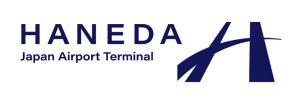 Japan Airport Terminal, which is responsible for the construction, management, and operation of Haneda Airport’s terminals, is spearheading the pioneering “terminal.0 HANEDA” initiative. This visionary cross-industry collaboration is focused on shaping the future of aviation by fostering innovation that will transform not only Haneda Airport but airports across Japan and internationally.
Japan Airport Terminal, which is responsible for the construction, management, and operation of Haneda Airport’s terminals, is spearheading the pioneering “terminal.0 HANEDA” initiative. This visionary cross-industry collaboration is focused on shaping the future of aviation by fostering innovation that will transform not only Haneda Airport but airports across Japan and internationally.
The “terminal.0 HANEDA” initiative is set to redefine airport experiences by leveraging cutting-edge technology, sustainability practices, and streamlined operations. Through this forward-thinking program, the airport is pushing the boundaries of what is possible, combining state-of-the-art advancements with practical application across various sectors, such as transportation, logistics, customer service, and environmental sustainability.
Anticipated to deliver ground-breaking insights and innovations by 2026, the “terminal.0 HANEDA” initiative will introduce scalable solutions that can be deployed at airports worldwide. Its focus on holistic innovation across all areas of airport operations exemplifies the transformative potential of collaborative, cross-industry partnerships.
With an accelerated pace of tech development, Japan Airport Terminal is solidifying its position as a global leader in creating the airport of the future. This bold initiative not only enhances the passenger experience but also sets a new benchmark for sustainable and intelligent airport management.
Hear more from Japan Airport Terminal Co., Ltd at FTE Global – the “CES of Aviation” taking place in Long Beach, California, on 9 to 11 September 2025. Yutaka Kuratomi, Vice President – Business Marketing Division, Japan Airport Terminal Co., Ltd, is delivering a Special Presentation titled ‘How Haneda Airport is collaborating to create the airport of the future through the “terminal.0 HANEDA” cross-industry innovation initiative, which is expected to provide significant insights by 2026’.
View the full FTE Global 2025 schedule at a glance >> Register for FTE Global 2025 >>Fraport
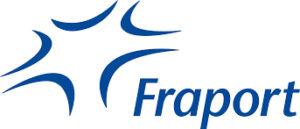 Fraport – a Corporate Partner of the FTE Digital, Innovation & Startup Hub – is exploring myriad technologies as part of its digital transformation strategy. Indeed, there are more than 100 IT projects running at FRA simultaneously. These include cloud technologies, private 5G network, digital twin, Internet of Things, biometrics, robotics and automation, artificial intelligence (AI) and more. Fraport is positioning itself at the forefront of digital transformation and running several projects under the umbrella of its AI@Fraport initiative. The overarching goal is to make Fraport fit for the future, while increasing the satisfaction of airlines and passengers and innovatively supporting employees. The airport operator is exploring generative AI (GenAI) and large language models (LLMs), as well as special AI algorithms and solutions such as computer vision and reinforcement learning that it believes can generate a tremendous impact. Furthermore, Fraport is actively developing and deploying agentic AI technologies as a core part of its Fraport.2030 corporate strategy and the AI@Fraport initiative. A prime example is the Intelligent Dispatching Agent (IDA), a sophisticated AI system designed to optimise the complex coordination of aircraft turnaround at Frankfurt Airport, one of Europe’s largest and busiest hubs. IDA utilises deep reinforcement learning to dynamically assign ground handling tasks based on real-time data.
Fraport – a Corporate Partner of the FTE Digital, Innovation & Startup Hub – is exploring myriad technologies as part of its digital transformation strategy. Indeed, there are more than 100 IT projects running at FRA simultaneously. These include cloud technologies, private 5G network, digital twin, Internet of Things, biometrics, robotics and automation, artificial intelligence (AI) and more. Fraport is positioning itself at the forefront of digital transformation and running several projects under the umbrella of its AI@Fraport initiative. The overarching goal is to make Fraport fit for the future, while increasing the satisfaction of airlines and passengers and innovatively supporting employees. The airport operator is exploring generative AI (GenAI) and large language models (LLMs), as well as special AI algorithms and solutions such as computer vision and reinforcement learning that it believes can generate a tremendous impact. Furthermore, Fraport is actively developing and deploying agentic AI technologies as a core part of its Fraport.2030 corporate strategy and the AI@Fraport initiative. A prime example is the Intelligent Dispatching Agent (IDA), a sophisticated AI system designed to optimise the complex coordination of aircraft turnaround at Frankfurt Airport, one of Europe’s largest and busiest hubs. IDA utilises deep reinforcement learning to dynamically assign ground handling tasks based on real-time data.
Meanwhile, besides typical AI solutions, Fraport is exploring cyber-autonomous systems in ground operations, and the potential of quantum computing. It is also notable for the biggest biometrics implementation in the world. From enrolment at a kiosk or counter, to pre-security automated gates and self-boarding gates, passengers can use biometric technology to seamlessly pass through each stage of the journey by simply scanning their face. The implementation also plays a key part in paving the way for the rollout of biometrics across Star Alliance’s global network, as it endeavours to have more of its 25 member carriers using biometric technology progressively.
Hear more from Fraport at FTE Global – the “CES of Aviation” taking place in Long Beach, California, on 9 to 11 September 2025. Jens Sanner, Program Director for Digital Services and Transformation, Fraport, is speaking in a session on ‘Advancing Digital Identity & Seamless Travel Efforts’.
View the full FTE Global 2025 schedule at a glance >> Register for FTE Global 2025 >>Changi Airport Group
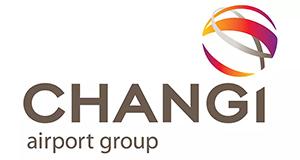 Changi Airport Group’s digital factory known as DIVA – which stands for Digital, Innovation, Ventures and Analytics – is helping transform operations and further enhance the traveller experience, developing, experimenting and launching new digital products and services.
Changi Airport Group’s digital factory known as DIVA – which stands for Digital, Innovation, Ventures and Analytics – is helping transform operations and further enhance the traveller experience, developing, experimenting and launching new digital products and services.
Changi – a Headline Partner of APEX FTE Asia Expo, Singapore, 11-12 November 2025 – is leveraging innovative technologies such as Extended Reality, machine learning, Internet of Things and edge computing to enable the airport to seamlessly engage travellers at various touchpoints, from before they arrive at the airport to after they leave.
Meanwhile, Changi Airport Group has also signed a Memorandum of Understanding to collaborate on the International Aviation Lab established by the Civil Aviation Authority of Singapore to jointly explore, initiate and undertake innovation projects.
Changi Airport Group is also investing S$3 billion over the next six years in Singapore Changi Airport Terminals 1 to 4 to improve services such as baggage handling, check-in, immigration and Skytrain connections between terminals, as well as to replace end-of-life systems to facilitate smoother passenger and airline experience. The investments will help Changi Airport stay competitive and meet rising demand for air travel before Terminal 5 is operational in the mid-2030s.
Aeroporti di Roma
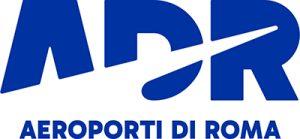 A unique innovation culture and mindset has helped to establish Aeroporti di Roma (ADR) – a Corporate Partner of the FTE Digital, Innovation & Startup Hub – as one of the innovation leaders in the global airport industry. Central to its efforts are the ADR Innovation Hub at the heart of Fiumicino Airport’s Terminal 1, and the ADR Innovation Cabin Crew – a team of 30 colleagues from different business units and subsidiaries – who play a pivotal role in mentoring and supporting startups, guiding them through development and testing, while simultaneously driving innovation within their own teams. Indeed, ADR’s Runway to the Future Acceleration program has attracted over 1,000 international startups in three years. The company has also launched ADR Ventures – an additional tool to help startups by financing the development of projects in areas with high innovation potential, operating from the Innovation Hub. This further illustrates ADR’s open innovation strategy. It is not only about providing finance, but also sharing know-how and skills to foster the development and growth of new companies and entrepreneurs to enhance digital transformation.
A unique innovation culture and mindset has helped to establish Aeroporti di Roma (ADR) – a Corporate Partner of the FTE Digital, Innovation & Startup Hub – as one of the innovation leaders in the global airport industry. Central to its efforts are the ADR Innovation Hub at the heart of Fiumicino Airport’s Terminal 1, and the ADR Innovation Cabin Crew – a team of 30 colleagues from different business units and subsidiaries – who play a pivotal role in mentoring and supporting startups, guiding them through development and testing, while simultaneously driving innovation within their own teams. Indeed, ADR’s Runway to the Future Acceleration program has attracted over 1,000 international startups in three years. The company has also launched ADR Ventures – an additional tool to help startups by financing the development of projects in areas with high innovation potential, operating from the Innovation Hub. This further illustrates ADR’s open innovation strategy. It is not only about providing finance, but also sharing know-how and skills to foster the development and growth of new companies and entrepreneurs to enhance digital transformation.
The pioneering ‘Airports for Innovation’ network is a perfect illustration of ADR’s collaborative approach to innovation. Composed of 10 leading airports worldwide: ADR, Aena, Dallas, Munich, Nice, Athens, Vancouver, Narita, Oman and Dubai, the network is designed to forge strategic alliances with airports globally, aiming to test and implement cutting-edge solutions across multiple hubs simultaneously. Additionally, the ADR Innovation Hub and Lufthansa Innovation Hub have established a partnership focused on joint innovation projects and sharing insights, best practices and technological knowledge.
Robotics and automation, artificial intelligence, Machine Learning, the Internet of Things, and more are among the technologies that are a key focus for ADR as it continues developing its innovation culture. Indeed, ADR has for example started an agentic AI adoption roadmap with the development and deployment of a custom virtual assistant for passengers. The virtual assistant, which can be used as a chat-assistant and will be soon available as a voice-assistant too, is generating benefit both in terms of operations enhancement and of improved customer experience.
Miami International Airport
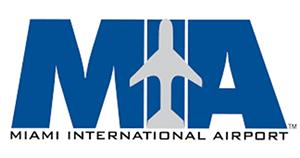 From curb to gate, Miami International Airport (MIA) – a Corporate Partner of the FTE Digital, Innovation & Startup Hub – has been introducing cutting-edge technologies at each customer touchpoint, simplifying and streamlining the passenger journey.
From curb to gate, Miami International Airport (MIA) – a Corporate Partner of the FTE Digital, Innovation & Startup Hub – has been introducing cutting-edge technologies at each customer touchpoint, simplifying and streamlining the passenger journey.
MIA is a member of the pioneering FTE Smart Ramp program, which has the ultimate goal that aircraft turnaround can be achieved autonomously and more efficiently. Each member is undertaking an innovation challenge, with MIA focusing on FOD detection via a Computer Vision AI turnaround system; installing and testing a private wireless network and 5G cameras to provide connectivity for a Computer Vison system designed to track aircraft turnaround activities and FOD detection; and testing four vendors of Computer Vision AI turnaround systems with four airlines, including the passenger boarding process.
As part of MIA’s Future Ready initiatives, the airport is advancing its Modernization in Action Plan, a comprehensive effort that will invest nearly $9 billion in maintenance upgrades and capital improvements over the next 10 years. Central to this will be technology solutions and user-driven innovation to elevate the travel experience, and MIA is exploring the potential of artificial intelligence (AI), robotics and autonomous vehicles.
MIA also sees vast potential in new digital identity approaches leveraging biometrics and how the sector can best utilise those opportunities. In addition to biometrics, the airport has trialled several innovations to enhance the passenger experience, including virtual queuing with the vision of full implementation, smart restroom trials, video analytics and Internet of Things (IoT) sensors for conveyances.
Meanwhile, efforts to build a smarter, more inclusive airport experience include creating innovative wayfinding solutions that cater to everyone together with Mapsted, Route Me, and Signapse.
Hamad International Airport
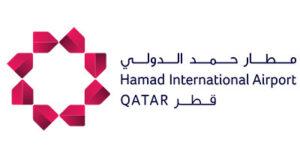 Hamad International Airport (HIA) – a Corporate Partner of the FTE Digital, Innovation & Startup Hub – is leveraging innovative technologies to achieve its goals in the areas of enhancing the customer experience, improving operational efficiency, driving sustainability, financial performance and helping its talented staff to reach their full potential. Through innovation and digital transformation, it aims to redefine industry benchmarks for excellence. A cornerstone of the HIA strategy is to continuously embrace emerging technologies by experimenting, prototyping and field-testing innovative solutions. Through its open innovation approach, HIA is working with a number of startups ranging from the U.S. to Singapore, on a set of funded co-creation initiatives and live trials. Projects include improving indoor navigation for special needs, robotics for environmental surveying, reinforcement learning airport resource allocation to unlock better than human performance, adaptive learning and meta cognitive assessments to enhance talent development and to reduce landfill waste by turning recycled water sludge into useful products, to name a few.
Hamad International Airport (HIA) – a Corporate Partner of the FTE Digital, Innovation & Startup Hub – is leveraging innovative technologies to achieve its goals in the areas of enhancing the customer experience, improving operational efficiency, driving sustainability, financial performance and helping its talented staff to reach their full potential. Through innovation and digital transformation, it aims to redefine industry benchmarks for excellence. A cornerstone of the HIA strategy is to continuously embrace emerging technologies by experimenting, prototyping and field-testing innovative solutions. Through its open innovation approach, HIA is working with a number of startups ranging from the U.S. to Singapore, on a set of funded co-creation initiatives and live trials. Projects include improving indoor navigation for special needs, robotics for environmental surveying, reinforcement learning airport resource allocation to unlock better than human performance, adaptive learning and meta cognitive assessments to enhance talent development and to reduce landfill waste by turning recycled water sludge into useful products, to name a few.
A key focus area is the use of generative AI and digital humanoids to create the next-generation digital passenger touchpoint and further improve customer experience. The digital human assists passengers with information related to flights, services, facilities, shopping and dining. It offers a personal human experience through voice-based conversation powered by leading-edge technologies such as large language models (OpenAI/ChatGPT). The primary benefit is a transformative passenger experience, while a secondary benefit is that it can augment the airport customer service team by answering frequently asked questions regarding flights, gates, airport services, food & beverage, retail, lounges and more. The airport’s latest AI Powered Digital Human for customer service can be deployed at scale across all major passenger touchpoints, such as information kiosks, customer service desks and even on personal devices through wayfinding QR codes and apps.
In addition, HIA has being trialling autonomous vehicles within its airside operations. The trials are in collaboration with Qatar Aviation Services, MATAR, and Qatar Science & Technology Park.
Airport Authority Hong Kong
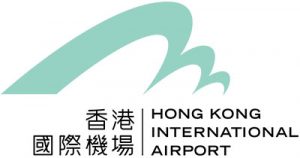 Hong Kong International Airport (HKIA) is leveraging a high-performance Enterprise 5G Infrastructure to drive digitalisation towards Airport 4.0, transforming from a ‘city airport’ into a smarter, safer, and more convenient ‘Airport City’. The Enterprise 5G Infrastructure at HKIA allows all Hong Kong local mobile network operators and HKIA’s private 5G network to offer 5G services through a commonly shared infrastructure.
Hong Kong International Airport (HKIA) is leveraging a high-performance Enterprise 5G Infrastructure to drive digitalisation towards Airport 4.0, transforming from a ‘city airport’ into a smarter, safer, and more convenient ‘Airport City’. The Enterprise 5G Infrastructure at HKIA allows all Hong Kong local mobile network operators and HKIA’s private 5G network to offer 5G services through a commonly shared infrastructure.
In pursuit of global leadership in smart airport development, Airport Authority Hong Kong (AAHK) has leveraged cutting-edge 5G applications to elevate both operational efficiency and passenger experience. Over the past 12 months, AAHK has introduced innovative services across six pivotal operational domains:
- Autonomous vehicles: in 2025, AAHK expanded its autonomous vehicle services with a total of 70 vehicles equipped with advanced autonomous driving technology. The ultra-reliable and ultra-low latency 5G network enables real-time transmission of high-definition video, remote emergency braking and comprehensive fleet management, enhancing operational safety and efficiency.
- Terminal operations: AAHK deployed over 150 units of 5G-enabled movable display panels to provide real-time flight information, wayfinding assistance, and notifications from government authorities. Furthermore, the implementation of a gantry lighting system with 5G IoT capabilities, allows for remote equipment monitoring and dynamic light adjustment.
- Passenger experiences: cloud-based, 5G-enabled smart check-in kiosks offer flexible deployment and expedite passenger processing, also serving as registration points for the ‘Flight Token’ biometric system. In preparation for the opening of HKIA Terminal 2, the kiosk system will expand from 180 to 240 units, further enhancing operational efficiency and security.
- Security and access control: a video analytics system featuring advanced biometric facial recognition has been deployed in terminal areas. Leveraging 5G’s high-speed connectivity and high-definition video monitoring, the system supports passenger behaviour analytics and strengthens security controls within designated airport locations.
- Internet of Things (IoT): the high capacity of the private 5G network supports a larger number of connected devices, enabling real-time data collection for preventive maintenance and infrastructure monitoring.
- Ground support: the deployment of autonomous apron line marking robots utilising private 5G for reliable, low-latency connectivity. These robots automate complex line marking on taxiways and runways, significantly enhancing safety, efficiency, and resource utilisation.
Munich Airport
 Over the past 12 months, Munich Airport has made significant strides in implementing its ‘Premium Innovation Hub’ strategy – an approach that thrives on strong partnerships and seamless collaboration between humans and technology.
Over the past 12 months, Munich Airport has made significant strides in implementing its ‘Premium Innovation Hub’ strategy – an approach that thrives on strong partnerships and seamless collaboration between humans and technology.
A standout achievement is the launch of the TUM Sustainable and Future Aviation Center, a joint research institute with Lufthansa, Munich Airport and the Technical University of Munich. This partnership unites academic insight with industry expertise to co-develop sustainable aviation solutions. Similarly, the Loyalty Hub Initiative – a trilateral collaboration between an airline, the airport, and a mileage program – demonstrates how shared data and communication channels can unlock new customer-centric use cases along the passenger journey.
Munich Airport has embraced a human-centred approach to digital transformation. The goal is to implement technological solutions that provide targeted support to employees in their daily operational tasks. People and machines work hand-in-hand. The systems and innovations implemented are designed to make daily work easier. For example, the deployment of artificial intelligence (AI)-supported turnaround management and real-time asset tracking empowers staff to make faster, data-driven decisions. The use of process mining with Celonis enhances transparency and enables teams to continuously improve workflows in ground handling, baggage logistics, and administration.
Collaborative robotics and automation are another key area of focus. Service robots like Jeeves and Ottobots are not replacing staff – they are teaming up with them to enhance passenger experience and operational efficiency. Pilot projects in cargo and apron areas are underway to reduce physical strain and boost efficiency. These innovations are co-developed and tested with operational teams, ensuring practical value and high acceptance.
The modernisation of security lanes in Terminal 2, including CT scanners and LiDAR-based checkpoint allocation, was achieved through close collaboration between technology providers, airport teams, and regulatory partners. This modernisation is now being continued in Terminal 1.
The rollout of the AIRHART platform and a corporate data lake unifies disparate systems and enables predictive incident management and AI-driven decision-making. Meanwhile, the expansion of early baggage storage and the rollout of 25 electric unloading aids were implemented in close coordination with operational teams, ensuring that new tools meet real-world needs.
These achievements reflect Munich Airport’s commitment to innovation through collaboration – where strategic partnerships and empowered employees work hand-in-hand with advanced technologies to shape the future of aviation.
Hear more from Munich Airport at FTE Global – the “CES of Aviation” taking place in Long Beach, California, on 9 to 11 September 2025. Thomas Hoff Andersson, Managing Director & Chief Operating Officer, Munich Airport, is participating in a session focused on ‘Airport leadership strategies to maximise capacity, operational efficiency, customer experiences, revenues, workforce and be ready for change?’ Meanwhile, Dr. Lutz Weisser, Managing Director, Munich Airport International (MAI), is speaking in a session titled ‘The future of business & commercial strategies for airports – are we at the threshold of airports evolving to become digital companies that run experiential businesses, and what would the new business models and organisational structures be behind that?’
View the full FTE Global 2025 schedule at a glance >> Register for FTE Global 2025 >>Groupe ADP
 Groupe ADP has reimagined time spent at the airport as a meaningful, premium experience though Extime. Launched as the new airside brand of Groupe ADP, Extime is much more than a rebranding. It’s a paradigm shift. The vision is to place hospitality at the heart of the airport, transforming it from a place of transit into a curated environment where design, service excellence, and commerce come together to create a new kind of airport journey.
Groupe ADP has reimagined time spent at the airport as a meaningful, premium experience though Extime. Launched as the new airside brand of Groupe ADP, Extime is much more than a rebranding. It’s a paradigm shift. The vision is to place hospitality at the heart of the airport, transforming it from a place of transit into a curated environment where design, service excellence, and commerce come together to create a new kind of airport journey.
What makes Extime unique is its ‘phygital’ approach, merging physical infrastructure with a powerful unified digital and data ecosystem to deliver one seamless, intuitive experience before, during, and after travel. At the heart of this transformation are three cornerstone innovations:
- Extime Rewards: the loyalty program, rooted in personalisation and relationship-building. It positions itself not merely as a rewards platform, but as a digital travel companion. Every euro spent, whether on a gourmet snack or luxury product, translates into points and benefits to facilitate the journey across all the boutique terminals. The program’s smart economic model is designed to create win-win value: partners are compensated when points are redeemed, and Groupe ADP builds stronger customer insight and engagement.
- com: the digital flagship store, offering passengers a single, streamlined platform to plan, book, and purchase over 10,000 products and services. With 800+ brands and service partners integrated, travellers can shop for duty free goods, reserve lounges, travel, parking, and more, all tailored to their flight details and timing. The user experience includes international payment options (Apple Pay, WeChat Pay, AMEX, etc), enhancing accessibility for global travellers.
- Extime Data Hub: the collaborative data platform that powers Extime’s customer knowledge engine. This shared system feeds intelligence to over 5,000 terminal-based frontliners and operators at Paris-CDG and Orly, enabling personalised service, optimised inventory, and predictive sales strategies. It empowers staff across multiple brands (retail, luxury, hospitality, F&B) to act as one unified customer interface.
Through close collaboration with trusted partners, Extime enables unified customer journeys and a scalable cross-selling environment, bridging digital innovation with human service. In essence, Extime is not a project – it’s a transformation blueprint, one that positions airports as lifestyle destinations, built for modern travellers and future-ready operations.
You may also be interested in
12 technology and CX trends that can enhance airline and airport operations in 2025
